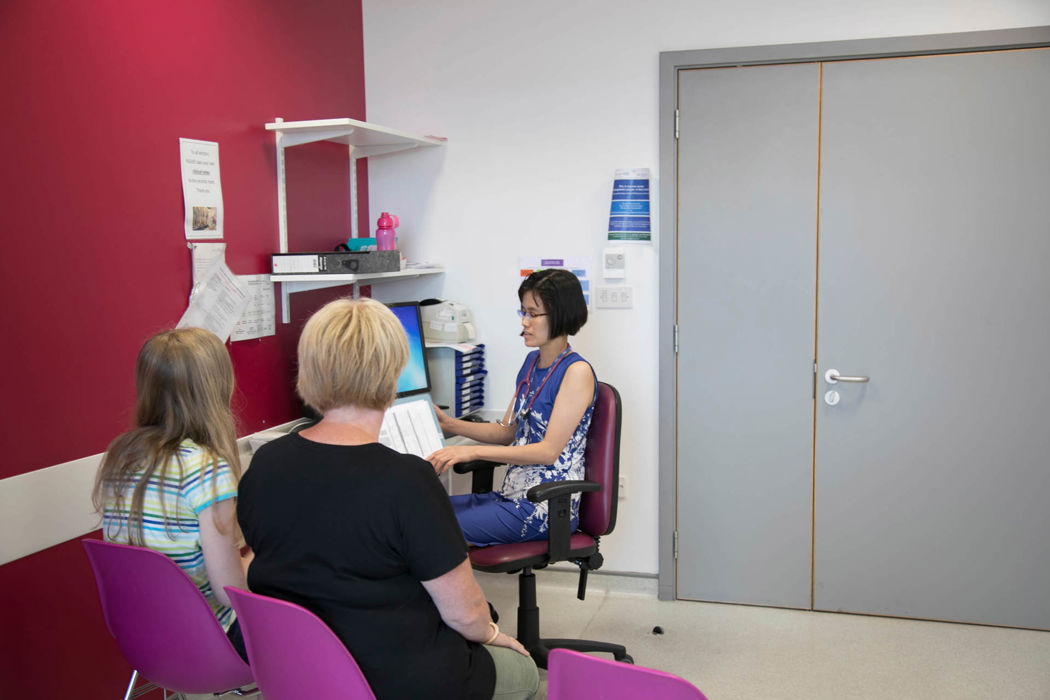Being told your child has IBD is a very challenging time. Here we look at results from a CICRA survey exploring the impact of diagnosis and how you can find a way forward.
Our survey exploring the impact of diagnosis found that parents experienced a wide range of emotions, with fear of the unknown, anxiety, being frightened, disbelief and shock being among the most commonly experienced. Most parents responding to the survey were not aware at the time of diagnosis that their child may have IBD. Wondering ‘what does this mean?’ and ‘why’ were frequent reactions to the news. Uncertainty about what would happen next or what the future may hold were
commonly experienced. There is a lot to take in, as parents learn about their child’s condition and come to terms with the reality that it is lifelong.
It hit home hours later that we had very little idea what Crohn’s was and what it meant for our daughter’s future. We went to pieces.
As part of the survey, we also asked parents what advice they would give to other parents on coping with diagnosis. Here’s what they told us.
get informed
A common piece of advice is to read as much information as possible about your child’s condition:
Go away, read what you’ve been given, take time to process.
Several parents advised against Googling (“there are some scary stories out there”) and only using reputable sources of information such as CICRA’s literature.
A number of parents made the point that what works for one child may not for another:
“Take a deep breath, try and get as much information as possible, but remember everyone is different and responds differently to the treatment.”
ask questions
Asking questions can help parents get to grips with the unknown and better understand their child’s condition, as well as potential treatments. One tip is to write down questions ahead of appointments “as it’s sometimes hard to think of questions off the top of your head at the time.”

involve your child
Several parents responding to the survey said it was important to involve the child in how their condition is managed and talked about:
They will have it for the rest of their lives. As parents we cannot and must not make all the decisions for them.
For older children, letting them ask questions and make decisions was suggested. For younger children, being “open as early as possible about all the things that would normally be embarrassing” was recommended.
get support
This was a key piece of advice given by parents responding to the survey. Parents described the benefits of support – to feel less alone, to help deal with their fears
and also a way to learn more about their child’s condition.
Parents recommended four sources of support:
- Health professionals, particularly gastro/IBD nurses (“ring your gastro nurse at any time if you are worried or need reassurance or need help”).
- CICRA and other charities. CICRA’s family days were recommended as “these benefit parents and children.”
- Support groups for parents (one parent said these “help immensely”).
- Friends and family (“helps you get through it”).
One parent advised seeking support “straight away.”
Another related how they felt “alone, uneducated and isolated and wouldn’t get through the days ahead” until they found a support group: “to know you’re not alone is fantastic.”
give yourself time to adjust and grieve
Several of the parents responding to our survey felt that it was important to give yourself time to come to terms with the diagnosis and adjust to what one parent
described as “a new ‘normal’ in life.” Parents should also allow themselves the time to grieve:
Give it time, grieve, get support, contact organisations, take it slow / one step at a time, there is a lot of info and stories which can be overwhelming too soon.
Take a breath. Take time to grieve the idea of what you thought things would be like then pick yourself up and start your new journey.
At the same time, it is important not to blame yourself:
It’s nothing you have done to cause it. I had to tell myself that as I kept thinking there must be something.
take things one day at a time
Not thinking too far ahead can make it easier to deal with difficult and uncertain times:
Take each day as it comes and don’t get overwhelmed by thinking too far into the future.
look after yourself
Parents responding to the survey stressed the importance of looking after yourself, as well as getting support:
Don’t do it all alone. And give time to yourself to rejuvenate. You got to look after yourself to be able to look after your children.
You will go through many emotions like a grief process, it’s ok to cry and be angry. Make sure you have support from friends and family and make time for yourself, it’s important to look after yourself so you can take care of your sick child.
get psychological support if you or your child needs it
As well as looking after yourself, a few parents highlighted the need to get appropriate psychological help for children and/or parents who need it.
If your child is traumatised by what is going on, get clinical psychology involved asap - they were awesome.
Ask for psychological help for your child if you feel that would help (and maybe for yourselves too. After all, you have to be strong enough to care for them!)
look forward
Finally, although it can be devastating to get the diagnosis, many parents also felt a sense of relief that they finally knew why their child was ill and could now focus on their treatment:
This is the child you love, this is part of them and you will find a path to make them better with the support of those around you.
